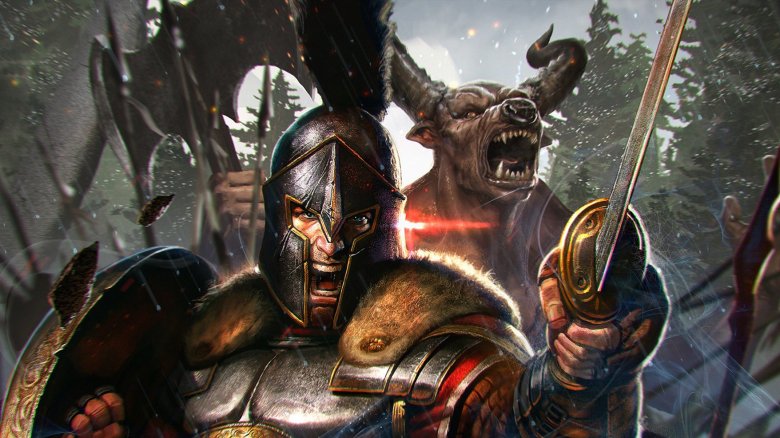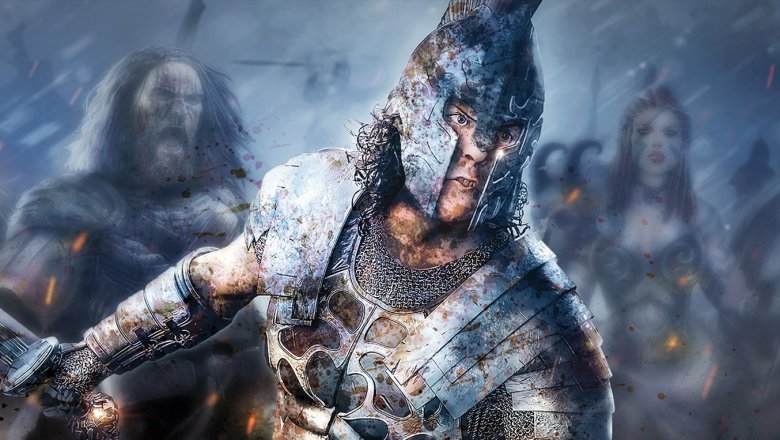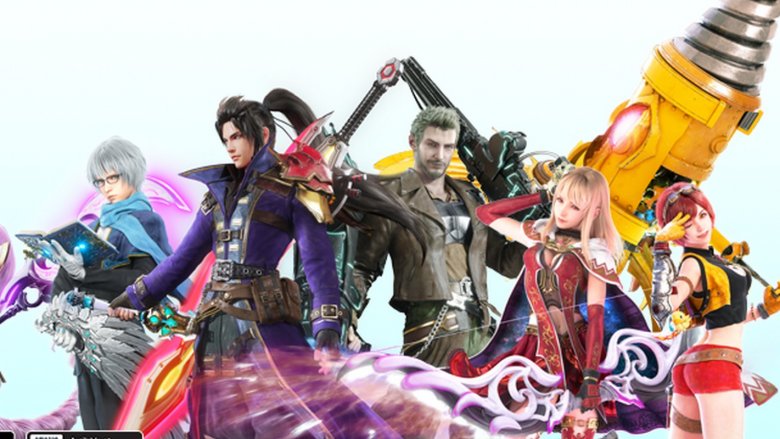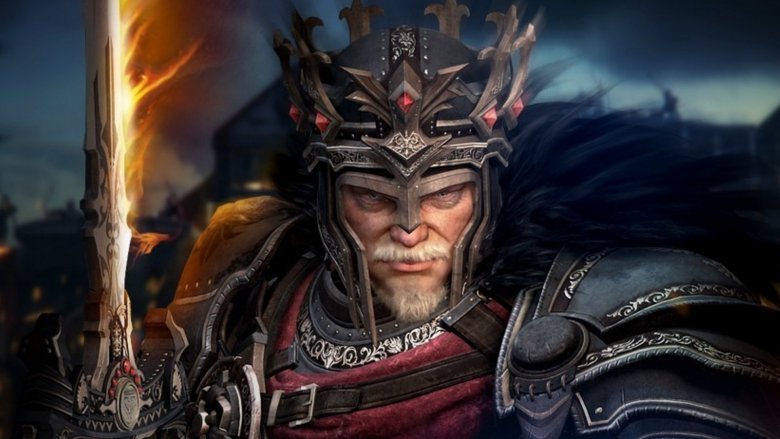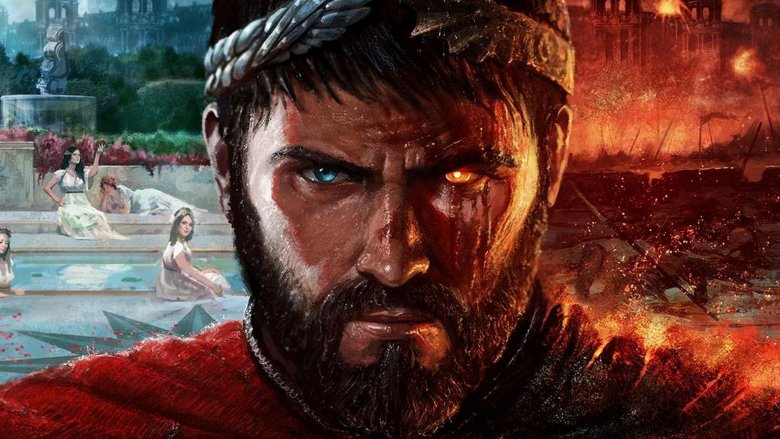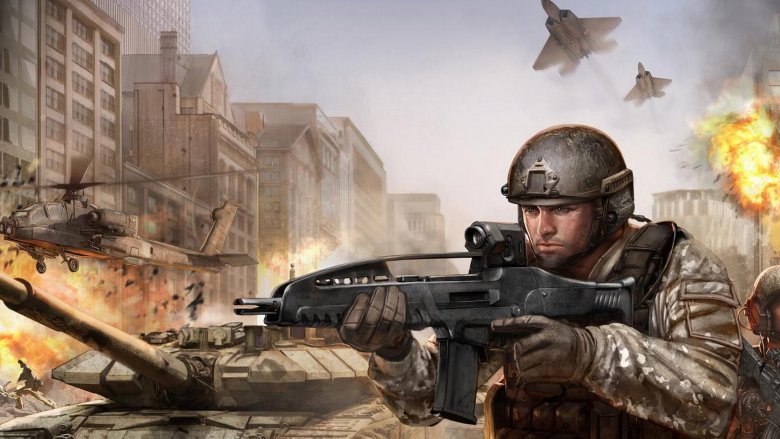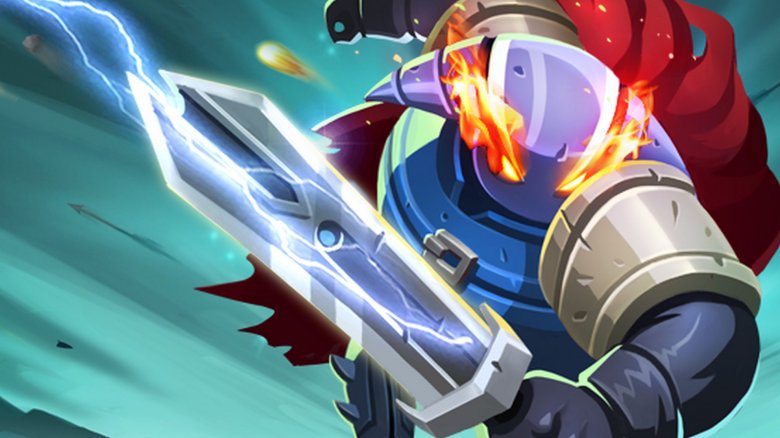People Who Wasted All Their Money On Gaming
The gaming industry may have changed over the past few decades, but it definitely hasn't gotten any smaller. According to gaming industry intelligence firm Newzoo, consumers will spend $137.9 billion in 2018 — an increase of $36.9 billion since 2016. And half of that will come from mobile gaming.
Clearly, people like games. But for some of us, "like" doesn't even come close. Some of us are going to account for a bigger chunk of that $137.9 billion than the rest, gaming will be more of an addiction than a casual interest, and it won't be long before our bank accounts and credit card balances make it clear what that obsession costs. Gaming has made people lose their jobs, their families, and in some cases even their freedom.
From thieves to self-professed gaming addicts and unrepentant "whales," here's a look at some people who wasted all their money on gaming.
California Stealin'
Game of War: Fire Age, famously promoted by model Kate Upton, is not the darling of gaming critics. Reviewers have called it "mundane," an "over-the-top cash grab," and "light on both action and strategy." Regardless, Kevin Lee Co of Rocklin, California sure liked it a whole lot.
In December 2016, Co admitted to using his position as controller of Holt of California to embezzle $4.8 million from the heavy equipment company. In a Sacramento federal court, Co said he used the company's credit to purchase — among other things — season tickets for the San Francisco 49ers and the Sacramento Kings, luxury cars, plastic surgery, furniture, and a golf club membership.
According to Co, the single biggest purchase he used the stolen money for wasn't for cars, speedboats, elective surgery, or working on his backswing. In his guilty plea, he admitted to spending "approximately $1 million" on Game of War. To put it in perspective, that's over 20 percent of the $4.8 million he stole.
Co could ultimately serve up to 20 years for the embezzlement. Originally scheduled for May 2017, Co's sentencing has been pushed back several times, with the most recent delay scheduling the hearing for April of 2018.
When Cloud 9 meets Chapter 9
In December 2017, days after Square Enix announced it was adding the iconic Cloud to Final Fantasy: Brave Exvius, the gaming site Kotaku reproduced an edited version of a Reddit user's confessional about putting himself $16,000 in debt with the mobile game.
Naming himself "nothing024," the gamer wrote about his early love for the original Final Fantasy and how it led him to buy consoles just to play sequels like Final Fantasy VII and Final Fantasy XII. Things changed once he was married and had kids, but the advent of mobile gaming let nothing024 return to the franchise he grew up with — and eventually be swallowed up by it.
The user wrote that he initially refused to pay for any extras in Final Fantasy: Brave Exvius, but eventually found himself frustrated and unable to move further in the game. Finally, he caved and spent $20. It wasn't much, but it proved to be the spark that started the inferno. Soon, nothing024 was spending hundreds of dollars to get characters he wanted. "It was only $200," he wrote about what he spent to get the character Luneth. "I can spare that. I haven't bought a video game in six years. I deserve it, I earned it." But nothing024's spending of hundreds of dollars turned to thousands. The gamer transferred his debt to a zero-interest credit card to hide the spending from his wife, but eventually — when his wife asked to use the card for food — the truth came out.
"I have never spent more than $1000 on my wife at one time," nothing024 wrote. "I spent $16,000 on digital garbage in about a year. If she decides she will divorce me, I owe her more than I could ever repay."
Money for nothing
If you get involved in a debate about whether or not money spent on a digital item is money spent on anything at all, you're potentially digging yourself a deep hole. Eventually, the discussion is likely to drift into unanswerable philosophical questions of "what is real?" and "why is one thing more real than another?" You'll end up asking yourself about red pills, blue pills, and whether or not there is a spoon. That might lead you to rewatch a fun movie, but you probably won't resolve any arguments about the nature of reality.
While a skilled debater might be able to convince you that what is virtual is as real as anything in the physical world, that same debater would likely find themselves stuck if they had to argue for virtual items that aren't even "virtual" yet.
In 2011, an unnamed Chinese gamer spent $16,000 on a virtual sword for the game Age of Wulin — which, at that point, had yet to be released. He bought the sword at an auction organized by the games developer, Snail Games. Other big ticket purchases from other gamers included a sheath for a weapon called the Hook of Departure which sold for $1600 and a sheath for a spear that sold for $2500.
Age of Wulin has since changed its name to Age of Wushu.
A regretful whale
In November 2012, Wired interviewed a handful of "whales" — i.e. big spenders on free-to-play games — on their spending habits and how they felt about them. They received a range of reactions, from whales who were disappointed in themselves to the Clash of Clans player who went by the name "Panda" and said, "You don't have to spend less, you have to earn more."
Unlike Panda, the whale who asked to be identified only as "Vince P." expressed nothing but regret over his situation. He initially told Wired he spent somewhere in the vicinity of $5,000 on the Facebook game Battle Pirates. As he went through his receipts during a Skype interview, he realized he had actually spent around $16,000 on the game. Wired writer Ryan Rigley described Vince P. as "looking positively distraught."
"It does kind of shock me, for sure, that it was that much," Vince said. "And it's all for nothing."
According to Vince, before his interview he and a friend had been considering spending $500 on a fleet of ships to win a tournament.
"We were seriously talking about dropping $500 on nothing," Vince said.
Every little bit counts
"I am 19 and addicted to gambling," wrote a Reddit user identifying himself as "kensgold" in an open letter to the game developer EA in November 2017. The gamer opened his post by saying he didn't blame EA or any other company for his addiction, but he did tell Kotaku that his letter was "a plea" to companies like EA to "take note on the effect microtransactions...can have on the small population...who are especially susceptible to them." He showed Kotaku documentation proving he had spent $13,500.25 on microtransactions between 2015 and 2017.
According to kensgold, his addiction started earlier than that. When he was 13, he spent money on a city-building game, and later moved on to the mobile game The Hobbit: Kingdoms of Middle-earth. Kensgold said he spent over $4,000 in 2015 alone on The Hobbit, Clash of Kings, and Age of Warring Empire. His only source of income at the time was a part-time job at Panera's that raked in between $300 and $400 bi-weekly. Eventually, he got a second job to pay for more micro-transactions, claiming he spent about 90% of everything he made on the games.
In 2016, kensgold moved from mobile games to PC games like Smite and Counter-Strike: Global Offensive.
In spite of his passionate letter to EA, kensgold hadn't gone cold turkey at the time of Kotaku's article. He was still playing games with in-app purchases like PlayerUnknown's Battlegrounds, but apparently had thus far "managed not to fall into that game's trap."
Game of More
In July 2015, a Cracked writer gave a self-deprecating account of how he'd spent over $9000 on the heavily advertised mobile app Game of War and how the game was designed to empty bank accounts. He claimed to be on the low end of the spending spectrum in Game of War compared to some of the people he'd met through the game, mentioning that his alliance leader spent over $75,000 on the app.
He described how the game eased him into things, dropping him in with a bunch of other newbies, but that eventually to take out his competition, he had to drop cash. Of course while he spent money, so were his competitors, and he felt forced to keep spending to to recover and compete because the game became "an investment." He wrote that the developers over-complicated the game with 167 different improvable statistics and since "each one could mean the difference between victory and defeat," he was incentivized to keep paying. He described how waiting times for technology research started at 10 minutes, grew to 40 minutes, and soon he'd wait "seven days, six weeks, six months" to improve and stay competitive unless he gave up the dough to shorten the wait time. He talked about how the game went out of its way to confuse players into spending money and how he actually paid "NOT to play" by giving up money for shields that kept his digital empires safe when he wanted a couple of days off.
Surprisingly, unlike the writers of many similar accounts, the Cracked writer admitted to still playing Game of War at the time of the story's publication. "I play Game of War for half an hour every morning," he wrote, "five minutes every hour at work, and, whenever I'm watching a movie, cooking dinner, or doing basically anything that isn't driving or having sex."
An angry whale
In 2016, Stephen Barnes of Houston, Texas made news when he boycotted Modern War. But he didn't walk away from the game alone: he took 144 of the game's top teams with him, including 22 of the leading 25 squads. Barnes' complaints included Gree — Modern War's Japanese owner — eliminating virtual items after players had already bought them, and altering the value and power of others.
Barnes, an appliance store owner, was able to take such a meaty chunk of the game's players with him because, since starting playing in 2011, he'd spent $2 million on Modern War. When news of the boycott broke, Barnes told VentureBeat he spent 40 hours a week playing Modern War — a length of time many Americans aren't even required to work to be considered full-time. "In the past four years," he told VentureBeat, "I don't think I've had a weekend off from it."
A happy whale
In May 2018, author Yu-Kai Chou interviewed a man calling himself "Big Jim" who had spent over $30,000 on the relatively new game We Heroes. Big Jim said he was a 55-year-old electrical engineer, and wasn't shy about admitting the money he'd spent on multiple games.
Big Jim told Chou he'd spent comparable money on Kabam's Kingdoms of Camelot before leaving the game and refusing to play any of Kabam's games because of what he called the "unethical practice" of trying to sell players virtual items without telling them the price.
He expressed curiosity over whether or not We Heroes had engaged in another unethical ploy to get more money out of him: assigning an employee mole artificially competing with whales like Big Jim to squeeze every drop out of them. But Chou confirmed with the We Heroes developer that the player in question — named Flash — was a just another big spender like Big Jim.
Big Jim didn't seem particularly upset by the large amounts of money he'd spent on gaming in general, though he did seem a little regretful regarding We Heroes. "We Heroes...has cost an insane amount of money," Big Jim told Chou. "I should not have spent so much money on it...Playing We Heroes means I will have one less motorcycle."
Well, at least she's in the right business
You may have heard of fantasy gamers who like dressing up like wizards or medieval warriors. You may know sci-fi gamers who like making their own faux energy rifles and donning homemade armor that looks like the Marines' outfits from Aliens. And sometimes, especially if you're particularly judgmental, you may decide the gamers in question have lost touch with reality — that they're getting their game worlds and the real one mixed up.
Well, one gamer didn't get her worlds mixed up — she made her game world the reality.
In December 2011, 54 year old Bettysue Higgins of Maine pleaded guilty to embezzling $166,000 from her employer between 2006 and 2010. She took the money by writing out company checks to herself and depositing them into her personal account. Out of the 220 checks she forged, money from 78 of the checks went directly to virtual currency for the Facebook games YoVille and, yes, Mafia Wars.
It wasn't specified precisely how much of the $166,000 went to games, but CentralMaine.com said records showed that in February 2010 alone, Higgins spent over $4,000 of the stolen money on YoVille and Mafia Wars.

